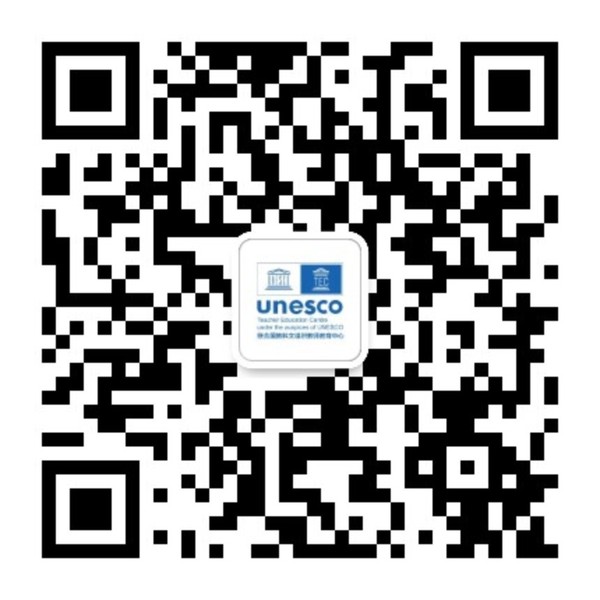On the morning of May 23, 2025, the closing ceremony of the 4th Hong Kong STEAM Education Leaders Exchange and Training Program was successfully held at the UNESCO Teacher Education Centre (hereafter referred to as the Centre). Attendees included Mr. Wu Daqi, Chairman of the Standing Committee on STEAM Education, Curriculum Development Council, Education Bureau of Hong Kong, and Chair Professor at The Hong Kong University of Science and Technology (Guangzhou); Ms. Tse Yuen-ching, Vice Chairman of the Standing Committee on STEAM Education, Curriculum Development Council, Education Bureau of Hong Kong, and Principal Assistant Secretary (Curriculum Support) of the Education Bureau of Hong Kong; Mr. Ho Tik-sun, Chairman of the Science Education Committee, Curriculum Development Council, Education Bureau of Hong Kong, and Principal of China Fund Secondary School; Mr. Chan Cheung-wai, Chairman of the Technology Education Committee, Curriculum Development Council, Education Bureau of Hong Kong, and Principal of Queen's College; Professor Zhang Minxuan, Director of the Centre; Professor Hu Guoyong, Deputy Director of the Centre; Professor Wang Jie, Deputy Director of the International Teacher Education Centre at Shanghai Normal University (SHNU); and approximately 30 representatives from the Curriculum Development Council and the Education Bureau of Hong Kong. The closing ceremony was chaired by Professor Hu Guoyong.
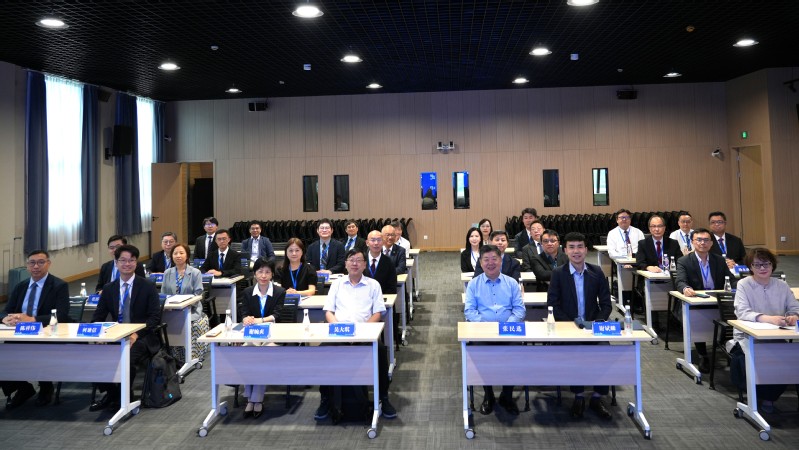
At the ceremony, a project summary video was played, taking all attendees through the memorable moments of the program. This was followed by a speech by Ms. Tse Yuen-ching. She fondly recalled the learning experience of the program, expressed sincere gratitude to all participants, particularly highlighting the Centre’s meticulous preparations and the hard work of its staff. She also encouraged attendees to continue exploring localized development paths for STEAM education in the future, to support students’ all-round development, and to cultivate more innovative talents for Hong Kong and the country.
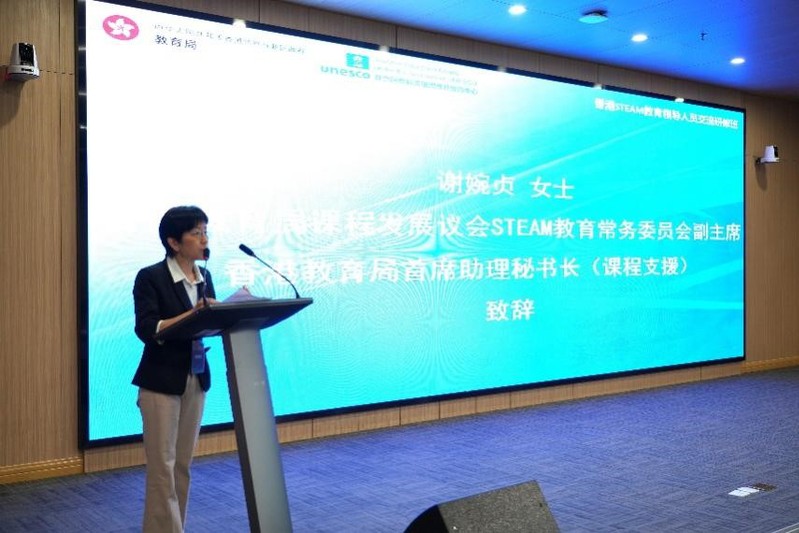
After the speech session, attendees took turns to step up to receive their certificates of completion, and together they took a precious group photo amid warm applause, bringing the successful program to a perfect conclusion.
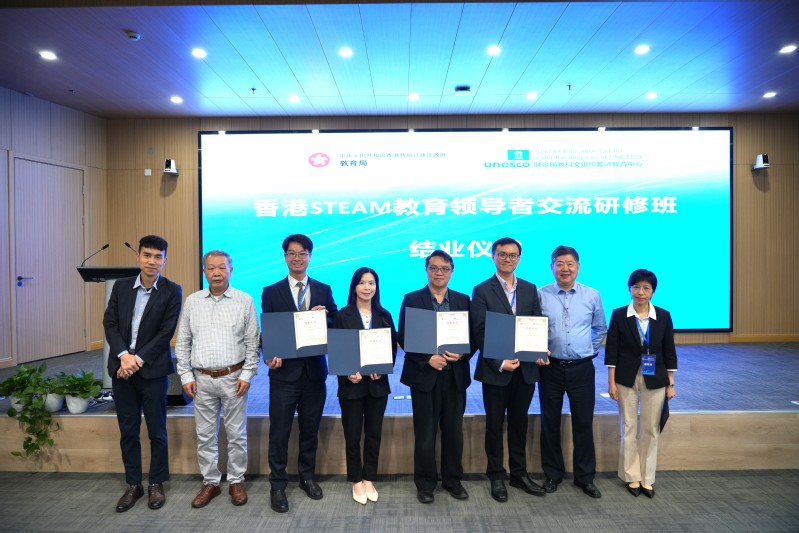
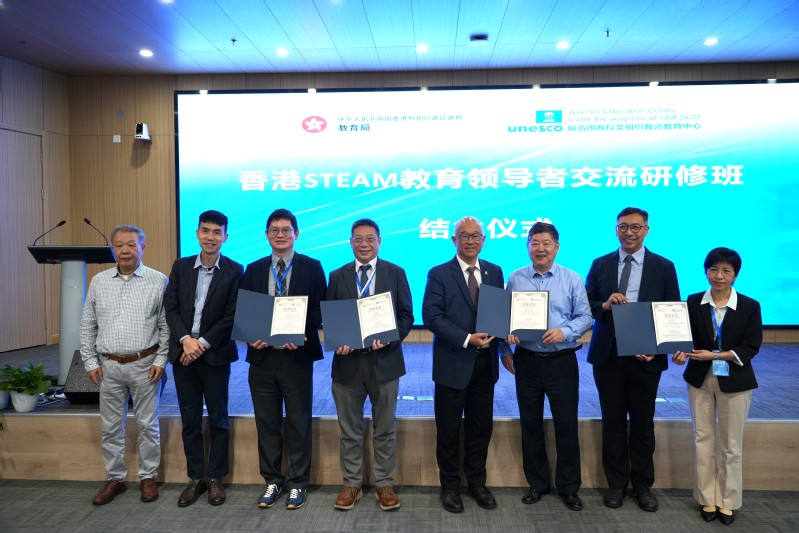
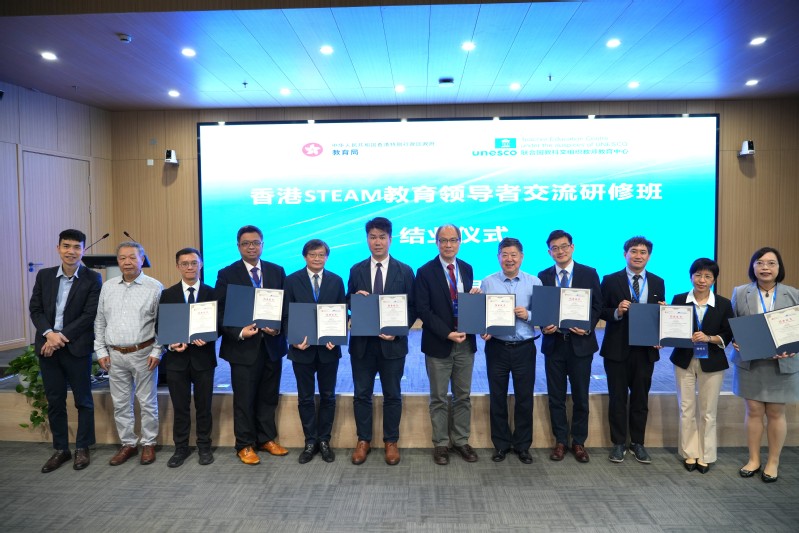
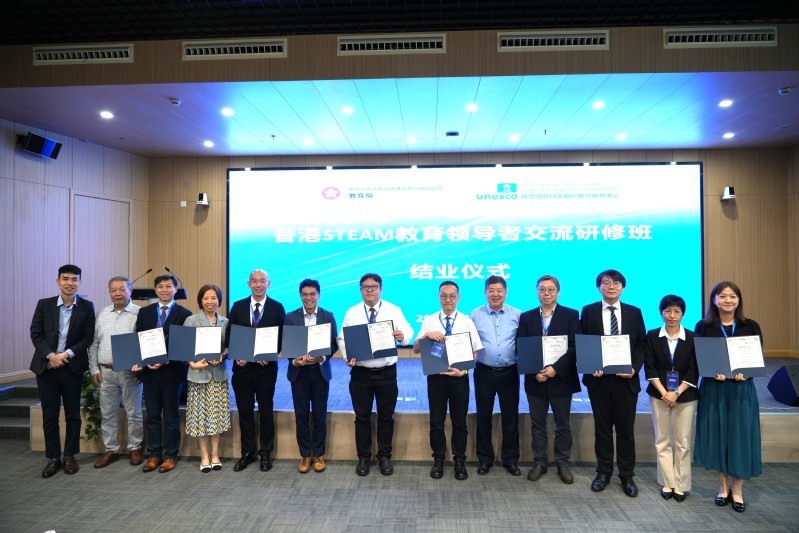
On the same morning, Professor Zhang Minxuan, Director of the Centre, delivered a lecture themed Shanghai’s STEM Education from the Perspective of PISA. He analyzed the performance of Shanghai and Hong Kong in mathematics and science in PISA tests, introduced the history, current status, and reform trends of STEM education in major countries worldwide, and explored how to develop STEM education in the AI era. The lecture provided an international comparative analysis of STEM education, offering profound insights and food for thought to the attendees.
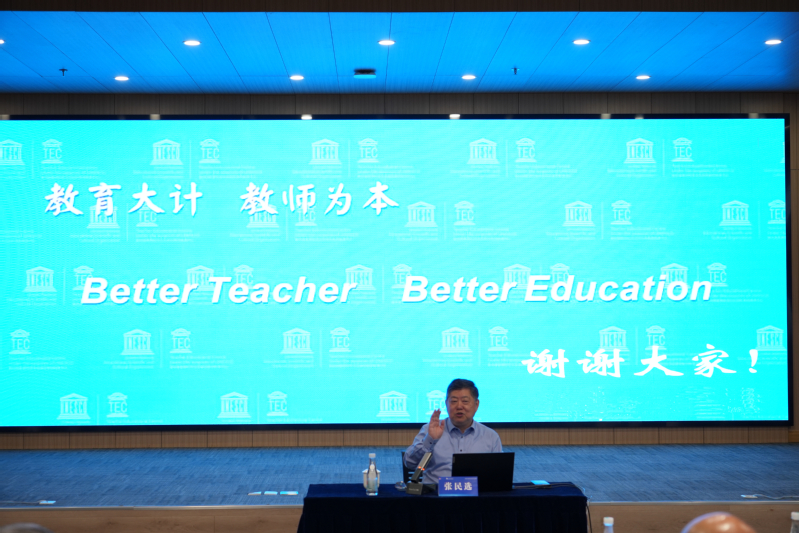
Beyond May 23, the earlier days of the program were also filled with highlights. Compared to the first three sessions, participants of this program attended a Shanghai municipal-level STEM teaching research activity held at Shanghai Shidong Experimental School (Shanghai Shidong High School), visited the Student Innovation Centre of Shanghai Jiao Tong University, and listened to lectures by experts including Associate Professor Bao Xianqing from SHNU.
At Shanghai Shidong Experimental School (Shanghai Shidong High School), the event was attended by Ms. Shen Huili, Deputy Director (Acting) of the Primary and Preschool Education Department of Shanghai Teacher Education College (Shanghai Municipal Education Commission Teaching Research Office) and compulsory education science teaching researcher; Mr. Li Ang, Director of the Secondary School Teaching Research Office of Yangpu District Education College, Shanghai; as well as municipal and district STEM teaching researchers and key teachers in Shanghai. Program participants first observed a special featured class titled ‘A Helping Hand’ for a Better City – Robotic Arm Urban Services carefully designed by Teacher Dong Shufang for Grade 10 students. They also visited the school’s urban innovation technology interdisciplinary learning space to experience the charm of STEM activities firsthand. In the thematic exchange session, Principal Shen Hong delivered a report titled From School Lab to Urban Lab – STEM Education Empowering the Construction of ‘Municipal Administration’ Featured Courses. This provided an opportunity for Shanghai and Hong Kong participants to conduct in-depth exchanges and discussions on the practical paths of STEM education and the development of featured courses. Mr. Zhang Yu, STEM Curriculum and Textbook Secretary and Acting STEM Teaching Researcher of Shanghai Teacher Education College (Shanghai Municipal Education Commission Teaching Research Office), summarized the event. He shared the characteristics such as the creativity in STEM curriculum development demonstrated in the teaching research activities of Shanghai and Hong Kong, and pointed out that STEM teachers shoulder the important responsibility of cultivating the country’s scientific and technological innovation talents. STEM teaching researchers and teachers should always focus on improving students’ literacy, maintain a sense of innovation, and help students gain more hands-on experience.
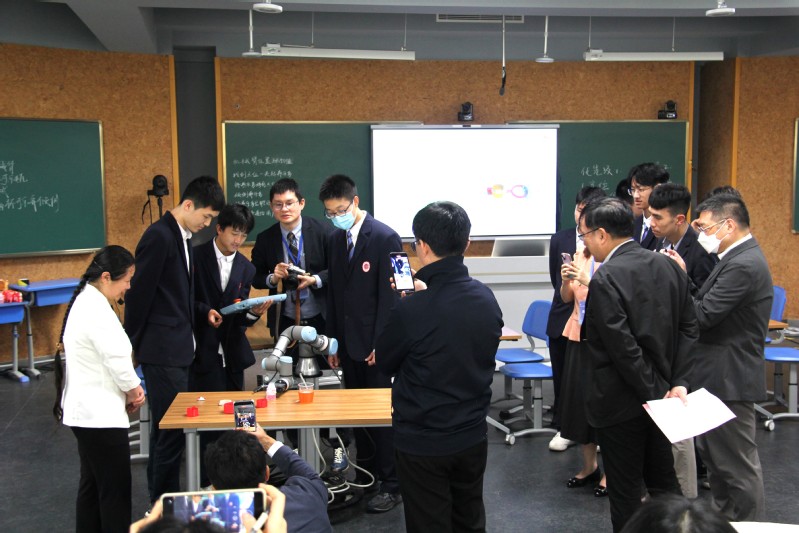
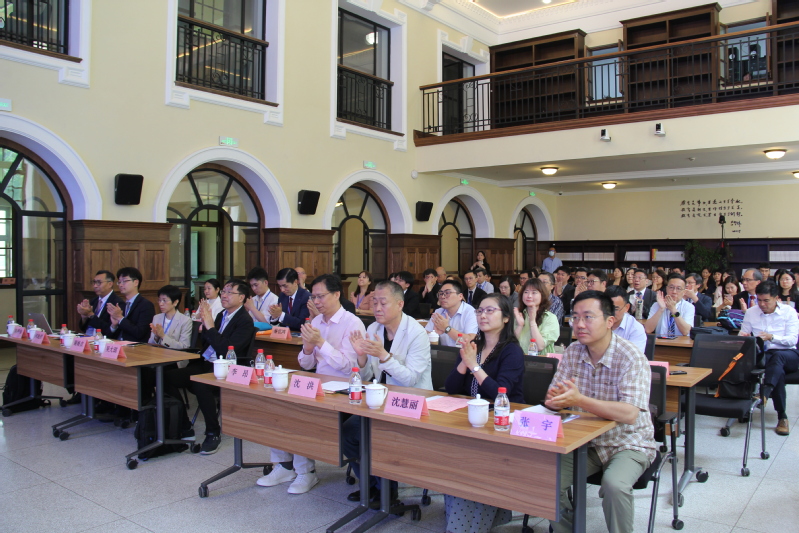
At the Student Innovation Centre of Shanghai Jiao Tong University, Mr. Chen Yun, Director of the Party and Administration Office of the Centre, introduced to the program participants the Centre’s practical education system integrating courses, competitions, innovation, research, and popularization and its various courses. He led them on a tour of multiple venues including the university’s racing team workshop, equipment lending centre, open service centre, and 3D printing room, explaining the development history of the clubs, their competition experiences, as well as the related facilities, resources, and operation models. This received high praise from the participants. In the discussion session, relevant responsible teachers from Shanghai Jiao Tong University and program participants had a lively discussion on the role of the innovation centre in cultivating students’ innovative capabilities, the types and implementation paths of service activities, and the experience in organizing and managing club activities.
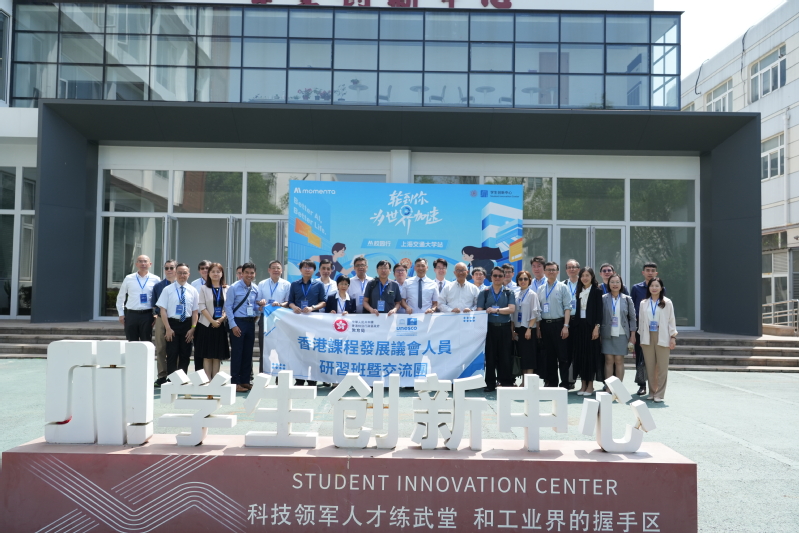
Associate Professor Bao Xianqing’s lecture, titled STEM Teaching Connecting Classrooms and Informal Environments, focused on the in-depth integration of educational programs and museum learning, sharing featured educational programs for teenagers and families. Taking museum teaching cases as a starting point, Dr. Bao compared the differences between traditional classrooms and informal learning. For example, he revealed the scientific logic of geological expeditions through soil sample analysis and interpreted physical principles with art installations. He particularly pointed out that such practices not only help students build immersive cognitive experiences but also provide interdisciplinary teaching and research materials for teachers, feeding back into primary and secondary school curriculum development and promoting museum-school collaboration from one-way output to two-way empowerment.
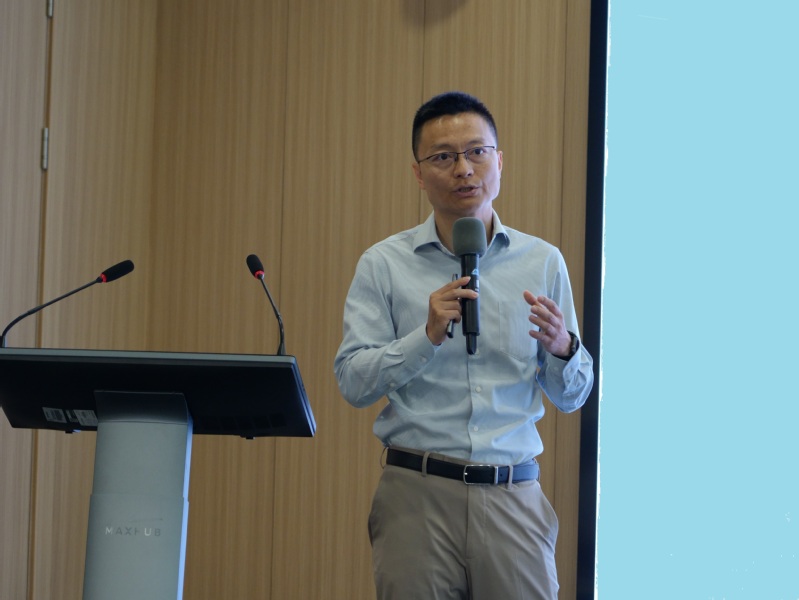
The successful conclusion of this program has effectively promoted collaboration among STEAM education researchers, curriculum developers, and practitioners from Shanghai and Hong Kong. In the future, the two sides will continue to cooperate to build a new engine for the development of national STEAM education.
(Photos/Contributions provided by: UNESCO Teacher Education Centre)




